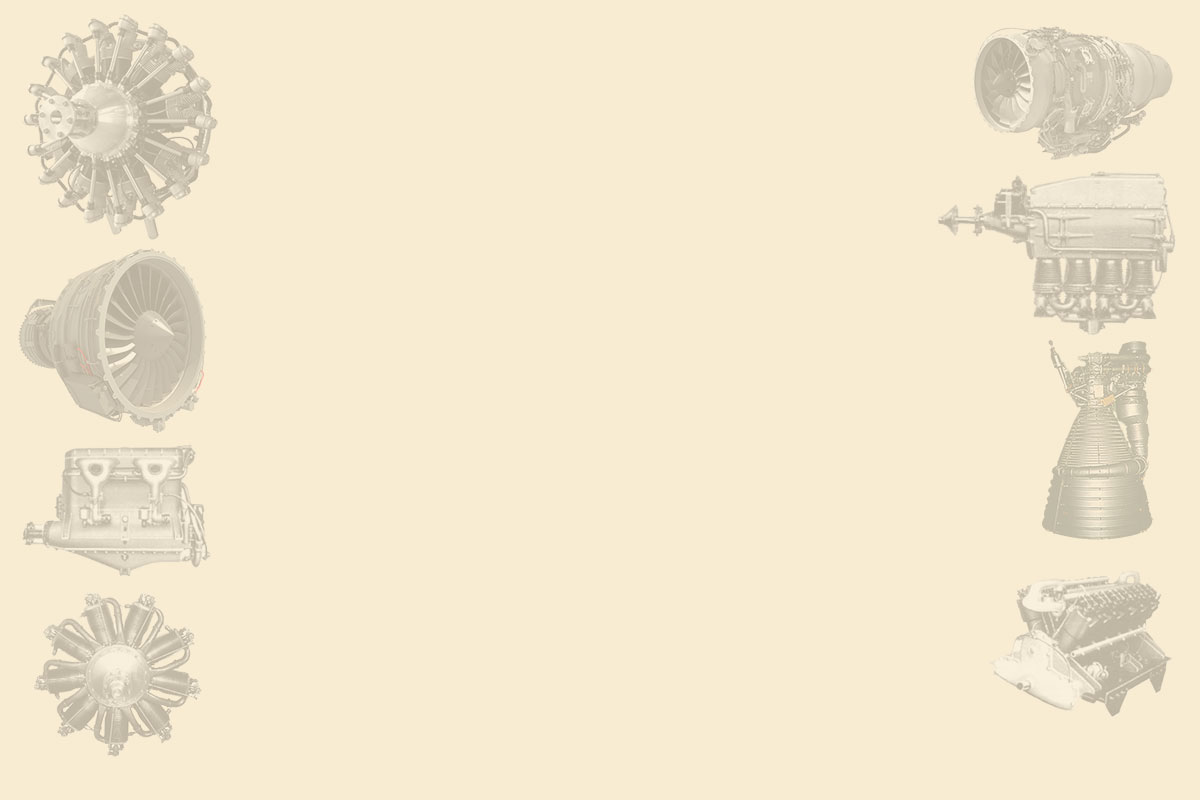Updated: 23-May-2024
Robert Goddard began his studies on solid propulsion rocket motors, but he became an inventor of liquid fuel rocket engines. We see his stabilized solid fuel rocket patent.
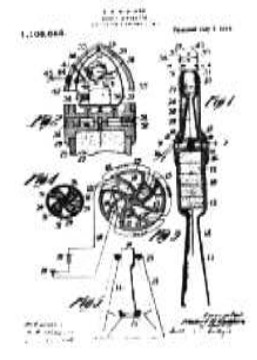
“Goddard patent”
-With the rocket illustrated below -in which Goddard remains at its side- he made a first flight of 2.5 seconds in which he reached 41 feet in Massachusetts, in March 1936.
-He lived between 1882 and 1945 and was a professor of physics
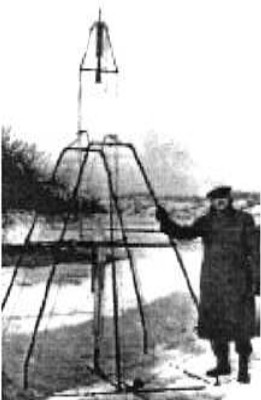
“Robert Goddard with his first liquid fuel rocket engine”
-The fuel that he used in his first liquid rocket engine was gasoline and liquid oxygen.
-It predicted that this type of engines in multi-stage vehicles could reach the Moon. He was the father of American rocketry.
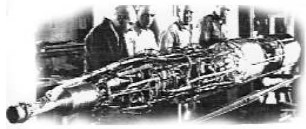
“Robert with his co-workers”
-In 1935 he presents the A-3, which we see together with his assistants in the New Mexico dessert. He did many tests with variants of his rockets.
-In 1941, Robert Goddard tested one of his most advanced rockets.
-This rocket was 22 feet long and also used gasoline and liquid oxygen.
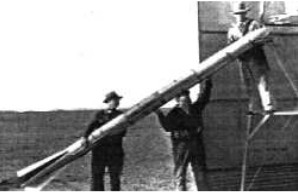
“In New Mexico”
-Today, this particular model is exposed at the NASM
From Appendix 6: Professor Robert H. Goddard was head of the Department of Physics at Clark University in Massachusetts. This was the place where he carried out a good part of his experiments, which were not few.
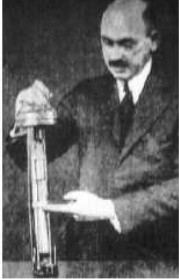
“Professor Goddard with one of his rocket engines”
-The engine that he has in his hands is a high speed one.
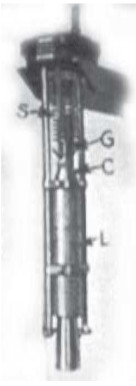
“The same engine on a test stand”
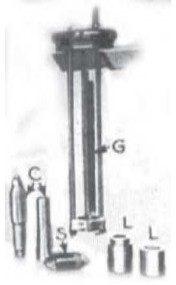
“Engine parts of the above engine”
-And below the assembly of the complete rocket, shown as a cutaway for better understanding.
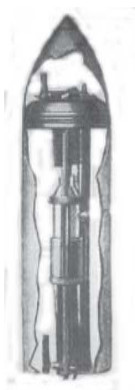
“Engine inside the small missile”
-We found two projects of Professor Goddard, pioneer of USA rocketry.
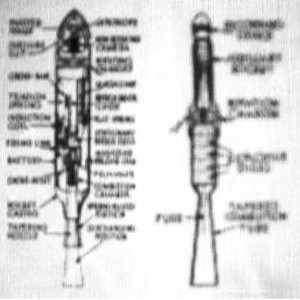
“Two Goddard projects, blurred when trying to expand them”
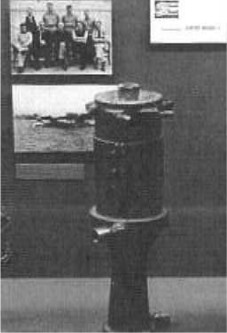
“Goddard engine at the New Mexico Museum”
-We are receiving more information from this pioneer of American rocketry. Robert H. Goddard.
-These are engines exhibited at the NASM. Some of them are delivered by the Guggenheim Foundation for exhibition.
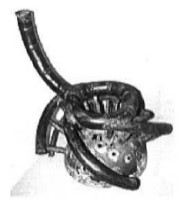
“Combustion chamber head”
-It has multiple injectors that are placed in a spiral, used in a 50 pound thrust engine that was built around 1927.
-It seems that during the first test it dit not remain whole. The evidence is this rest.
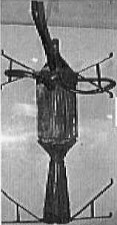
“Liquid fuel engine from 1929”
-It is said that it was the engine for the first rocket with instrumentation to measure pressure and air temperature.
-It was used for tests carried out in New Mexico in 1930, and reaching 2000 feet in altitude.
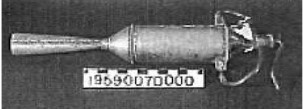
“Goddard engine from 1930”
-He received help from the Daniel Guggenheim Foundation, who later donated it to the NASM.
-Another engine from the 1930's is shown as cutaway .
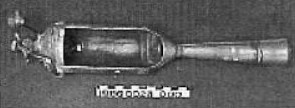
“Liquid fuel engine, cutaway”
-Although Goddard began testing rockets with solid fuel, he changed over to use liquid fuels, and it is said that, in 1926, he was the first to launch an rocket of this type.
-As a rocketry pioneer, Goddard had his most fruitful time in the 1910-20's.
-One of his tests was a rocket with an intermittent pulse engine.
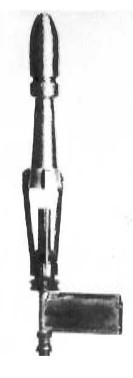
“Intermittent pulse rocket engine on its support”
-He did all kinds of tests including rockets for self-propelled ammunition like the one he loads in the photo below. Both photos came to us via AEHS-NASM.
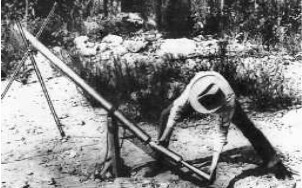
“Goddard during a test”
-New illustrations of Robert H. Goddard with his rockets and tests.
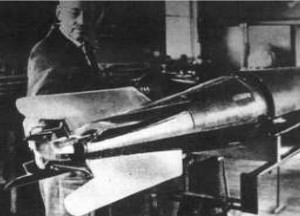
“Goddard with one of his rockets”

“Manipulating one of his engines”
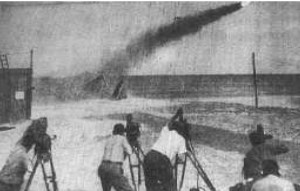
“Filming a test for evidence”
From Appendix 12: We found an illustration of a project of this American rocketry pioneer. Searching for more information.
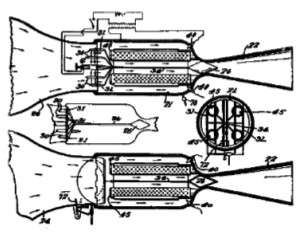
“Strange engine concept. Ramjet?”
Engines of GODDARD
Model: Rocket engines
Arquitecture:
Chambers:
Fuels:
Feed System:
Ignition:
Thrust:
Weight:
